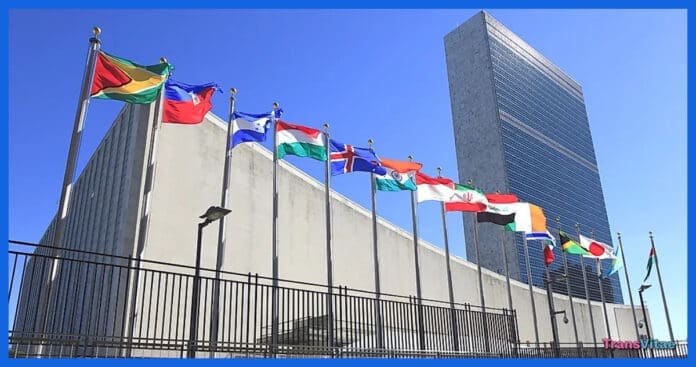In June 2025, the United Nations Human Rights Council received a controversial report from Reem Alsalem, the UN Special Rapporteur on Violence Against Women and Girls. Titled “Sex-based violence against women and girls: new frontiers and emerging issues” (A/HRC/59/47), the report outlines Alsalem’s concerns over the erasure of sex-specific language and the rise of what she claims are new forms of sex-based violence driven by gender identity ideology.
While her mandate focuses on protecting women and girls, Alsalem’s language echoes widely debunked theories, most notably the pseudoscientific concept of “rapid-onset gender dysphoria” (ROGD). In doing so, the report raises alarms about how international authority can inadvertently lend credibility to harmful narratives about transgender people, particularly youth.
Who Is Reem Alsalem?
Alsalem, a Jordanian legal expert with a background in refugee rights and humanitarian law, has served as the UN Special Rapporteur since 2021. She has become increasingly vocal about concerns she attributes to “gender ideology,” often framing trans rights initiatives as threats to women’s safety and legal recognition. Her recent publications and public remarks have aligned with language often used by gender-critical and anti-trans advocacy groups, despite her position within the UN’s human rights infrastructure.
Framing Trans Youth as a Social Risk
In her preliminary report, Alsalem claims that “coercive inclusion” of transgender individuals, particularly trans women in female spaces, undermines sex-based protections. She also suggests that girls on the autism spectrum are vulnerable to being swept up in gender transition as a form of “social contagion,” an assertion that mirrors the core claims of ROGD. These views have no consensus in clinical science and have been dismissed by major medical bodies globally.
As detailed in TransVitae’s investigation of the ROGD myth, ROGD originated from a flawed 2018 study that surveyed only parents, often unsupportive, without input from trans youth themselves. The hypothesis has since been widely discredited by psychologists, pediatricians, and LGBTQ+ health organizations.
UN Endorsement by Omission
Although Alsalem does not explicitly promote ROGD, the report amplifies similar ideas under the guise of emerging threats. By questioning gender-affirming care and linking it to autism, dissociation, and regret, the report subtly validates anti-trans narratives. And when the UN speaks, governments listen. That’s why trans advocates worry this report could influence international policies, legitimize restrictive laws, or embolden those seeking to roll back rights.
The Bottom Line
The UN’s human rights mechanisms are meant to protect the marginalized, not pathologize them. When Special Rapporteurs rely on selective data, outdated science, or ideologically driven submissions, the resulting reports can cause real-world harm. Policies built on these assumptions risk denying transgender people access to care, legal recognition, and personal safety.
For the trans community, especially young people, this moment is critical. We must demand that institutions like the UN uphold rigorous standards of evidence and remain accountable to the people whose rights they claim to protect.


